March is Women’s History Month, and last week, on March 8, we observed International Woman’s Day. What’s new today–not just this one day, but in our lives–is the idea of women helping women. Not just women in trouble; women helping each other thrive. Women mentorship. In honor of helping each other in whatever way we can, I honor someone who has helped me enormously.
Some people fantasize about having a driver, or a personal trainer, or an organic cook. I used to fantasize about having a mentor: that person who would care about my work, nurture me as I set out on my book—take me beyond my own thinking, hang in there with me as I think it through.
Even today, whenever I thumb through a book’s acknowledgments, I wonder who did what for that author. Was the acknowledged person a careful reader, a gifted fact-checker, an acquaintance, a relative, even a stranger who offered a single brilliant insight? Or a mentor?
Mentor himself—there was one—was, as Webster’s Dictionary puts it, “a friend to whom Odysseus, when setting out for Troy, entrusted the care of his house and the education of Telemachus.” Telemachus was the son of Odysseus’s foster brother, Emmaeus, so it was no small thing to hand over his nephew and his palace while he went off to war. Later, the lower-case word came to mean someone with influence or power who oversaw the education and career of a younger protegee or mentee; an influential senior sponsor or supporter. Aristotle and Alexander the Great. James Baldwin and Maya Angelou. Batman and Robin. Even now, when used more loosely, as I do, the idea of that wise friend and faithful counselor feels like one of the greatest of life’s luxuries.
 I have had a mentor for two decades. She is a contemporary to whom I turn the moment I have a book idea; a writer, like me, and very brilliant, whose thinking is not necessarily a reflection of my own, but complementary and, I sometimes think, essential to its development. “My deep gratitude to Annie Gottlieb, whose inexhaustible intellect and support sustained me,” was my inadequate acknowledgment in my first book, The Erotic Silence of the American Wife, in 1992. I did a bit better with my next book, Marriage Shock: “I am deeply grateful to Annie Gottlieb, on whom I depended not only to help me process, map, and formulate all that I learned, but much more: to bring such intense material to life when its substance and meaning often felt—as it did to the women themselves—too slippery to unearth and articulate.”
I have had a mentor for two decades. She is a contemporary to whom I turn the moment I have a book idea; a writer, like me, and very brilliant, whose thinking is not necessarily a reflection of my own, but complementary and, I sometimes think, essential to its development. “My deep gratitude to Annie Gottlieb, whose inexhaustible intellect and support sustained me,” was my inadequate acknowledgment in my first book, The Erotic Silence of the American Wife, in 1992. I did a bit better with my next book, Marriage Shock: “I am deeply grateful to Annie Gottlieb, on whom I depended not only to help me process, map, and formulate all that I learned, but much more: to bring such intense material to life when its substance and meaning often felt—as it did to the women themselves—too slippery to unearth and articulate.”
You see where I’m going with these condensed tributes: Annie makes it matter to me that I get it right, from the thought itself throughout the thought process.
Annie calls this being “a writing buddy.” Writers do have colleagues and friends who matter tremendously to their work and to them, but Annie is different. The often inchoate expressions from women that I’m privileged to share with them, those slippery, tentative transgressive, angry and fearful thoughts about their lives, their loves, their frailties and failures and regrets and hopes, become magically simplified and amplified when I can process them, over years, sometimes, with Annie. Annie makes my idea matter. She makes how I say it matter. In so doing, she makes what I do matter.
There was a conundrum years ago when women dropped out of support groups, complaining of abandonment. Why would these groups withhold their encouragement not from the woman in the middle of a divorce or a breakdown; not from the one who reentered rehab or remarried the alcoholic; but from the woman who became successful in her work? There were many reasons for thinking such a woman wouldn’t need help, but today, as we flood the workforce, we know better. And we’re getting the once-forbidden hang of empowering her not only in her personal life but in her career.
Whether we’re influential or powerful, older or younger, whether we can pave the way for her or just help her find her way, we’re becoming I’ve-got-your-back mentors. We support, criticize, clarify, teach, empower. The next evolutionary leap? To move beyond merely pressing for equal pay and equal representation at the top, and insisting on them; assuming them. We take that leap by jumping in the way Annie did, to make what women do matter.
This essay was originally written for Open Road Media.
